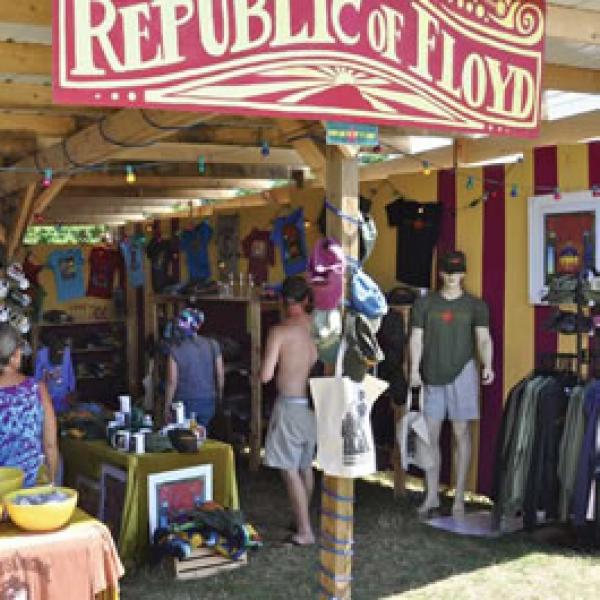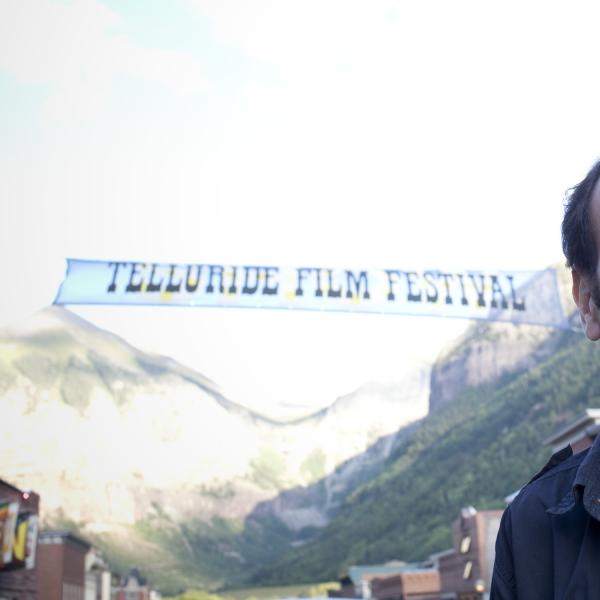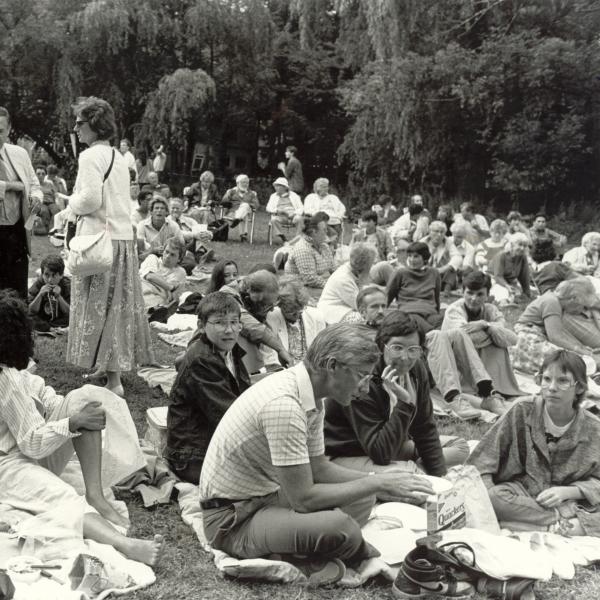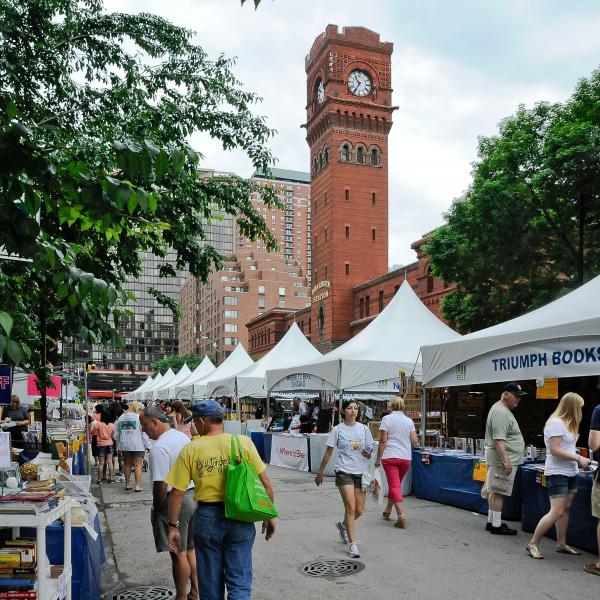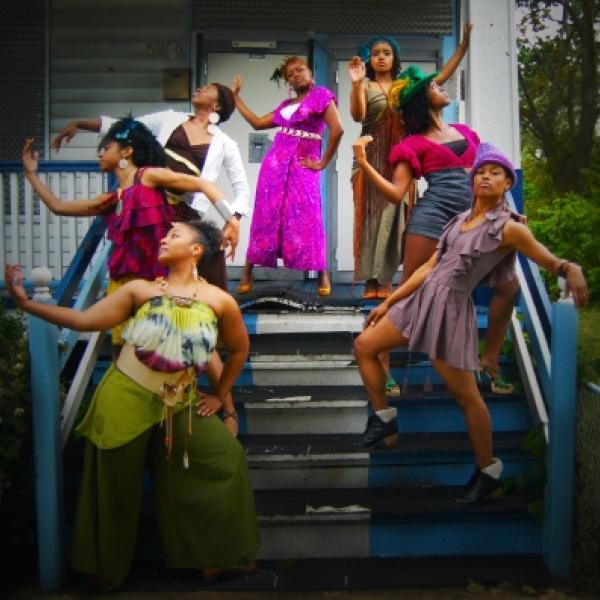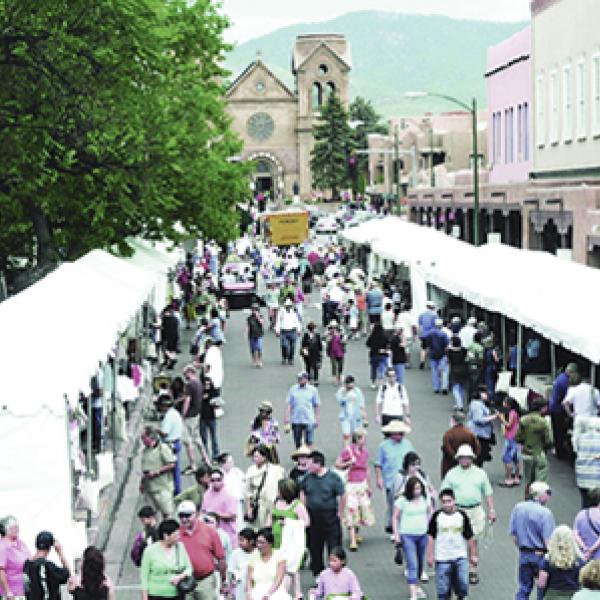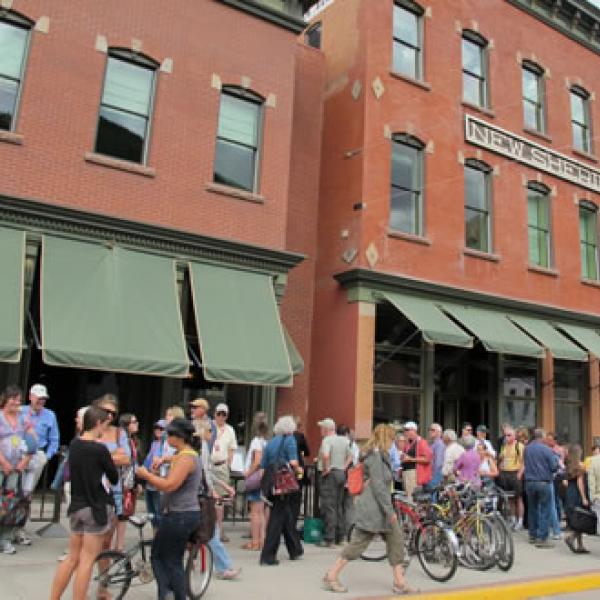The Words and Music Festival: WAMFest
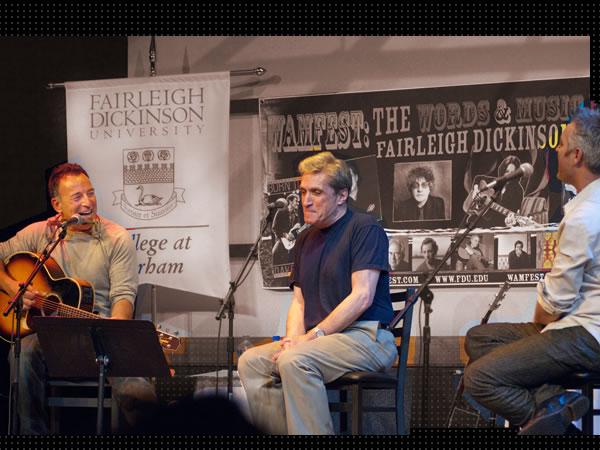
Musician Bruce Springsteen, poet Robert Pinsky, and writer Wesley Stace (aka John Wesley Harding). Photo by Dan Landau
The Words and Music Festival, or WAMFest, takes place annually at Fairleigh Dickinson University in Madison, New Jersey. David Daniel designed this Festival as a way to shine a light on the unique relationship between popular culture and scholarship. Past contributors include a diverse group of writers and musicians ranging from the brother-sister duo the Fiery Furnaces, poet Paul Muldoon, and comedian Eugene Mirman to musicians Rosanne Cash and Alejandro Escovedo all the way to a dream pairing of two of Jersey’s finest artists, former U.S. Poet Laureate Robert Pinsky, and "The Boss," Bruce Springsteen. In addition to Daniel, we'll hear from Wesley Stace (aka John Wesley Harding), Josh Ritter, Robert Pinsky, and Bruce Springsteen.
MUSIC – “Change of Time” by Josh Ritter
DANIEL – As a child I became interested in the arts because of popular culture. And primarily I became a poet, I think, because of the Beatles and the various great bands that I was listening to as a child.
(Beat) I’m David Daniel, Director of the Undergraduate Creative Writing Program at Fairleigh Dickinson University in Madison, New Jersey.
The Words and Music Festival, or WAMFEST, as I call it, came about as a kind of culmination of a number of things that I've been concerned about over the years. And it just dawned on me that I could bring together these two aspects of my life, the music side and the poetry side, and maybe be helpful.
DD – I should say that this got off the ground because Wesley Stace and I had dinner together, and he loved the idea. And I think the combination of just his enthusiasm and his connections with people opened doors for my ideas to sort of actually walk on to the planet, as opposed to remaining in my head. And I think so after that first year when Wes got involved, things just changed. I felt like I was fighting some enormous battle. And all the sudden it became a collaboration and really a blast as we kick around the ideas for these things.
AK – At this year’s Association of Writers & Writing Programs Conference in Washington, DC, David Daniel moderated a WAMFEST panel between two musicians, who are also novelists – Josh Ritter and Wesley Stace (aka, John Wesley Harding).
DD – [from AWP – live introduction of JWH]
John Wesley Harding has released 15 albums ranging from traditional folk to full-on pop music. Wesley Stace has published three novels, the third of which Charles Jessold, Considered as a Murderer, came out yesterday. One critic has said this is one of the few novels I’ve ever read that is truly musical. Wesley Stace is a brilliant and interestingly original writer and this is his most unusual book yet.
STACE – [from AWP] The novel is narrated by a critic about this composer who killed his wife. It’s called Charles Jessold, Considered as a Murderer.
AK – Wesley Stace
STACE – At the beginning of the book, my image was two gentleman on bicycles cycling to hear someone play a folk song, and what they find is wilder than they could’ve possibly have magined.
And there’s a song attached which I may even play. Let’s see.
“Glimpsing blue sky we peddled off with hope in our hearts only to be welcomed by another biblical torrent that hounded us from the road. An unexpected, fortunately brief assault of hailstones the size of sovereigns left us no choice but to shelter in a barn that offered as little cover as an interior could. To our surprise we found a shepherd also there wet-through, shivering in white smock, as his dog toweled itself on available hay.
His name was Harold Marsh. But my reflex was to ask if he sang, we were still on the clock after all, however much of a wash-out the day proved.
“Yes,” he answered, his father was a regular “songbird.” Marsh removed his cap out of deference not to us, but to the song he was going to sing.
“I should give ya, ‘As it fell out on upon a day…. – The Ballad of Little Musgrave and Lady Barnard.’”
“As it fell out upon a day
as many in the year
Musgrave to the church did go to see fair ladies there
Some came down in red velvet, and some came down in pall
And the last to come down was the Lady Barnard, the fairest of them all…” [:56]
AK – David Daniel
DD – [from interview] I'm looking at the events often from the point of view of the students. But once someone like Josh Ritter, whether they're fans or not, begins to talk about process, to begin to talk about how he begins a song, and looking at those doors that he may open one or two of to finish up a song, and learns to open up a thousand of them to write a novel, that is so inspiring to the kids and to anyone watching it because it just seems so human. There's something about the demystification of the process that these artists and Josh Ritter is a fantastic example of someone who's just a very, very generous man, very humble. And he's trying to eliminate any mystery or sort of fog or preciousness around what he does, and to get right down to it, which is just him and a guitar, and just is trying to work from one place to another, or him with a word processer.
AK – Josh Ritter
JR - [from AWP] When you write a song you’re sort of building a hallway. Songs are hallways with doors going down either side. And somebody who’s listening to a song can walk down the hallway and choose to go through whatever door they want. And once they’re through that door they’re in their own place. A novel is that unfolding and you’re walking through these doors and kind of recording what you find there. Then I realized I had this song which was long, a little too long for a record and maybe a little heavy to really be supported by a strummy little melody. So I figured I’m just gonna take this. I have the story and I’m gonna try and unfold it.
AK – David Daniel
DD – When you hear them talk about these things, whether it's Bruce, or Pinsky, or Josh Ritter or Wes Stace, they become people that you know, and people that you can relate to at a level that is, they're addressing you as just other people trying to do something, trying to make stuff up. And that’s a wonderful, wonderful thing for the students to hear, and I think really for anyone to hear.
(Beat)
[from WAMFEST] And now Wesley Stace, who is also John Wesley Harding, novelist and songwriter, our WAMFEST Artist-in-Residence, in conversation with two poet Laureates, Robert Pinksy and Bruce Springsteen.
(clapping)
WS – [from WAMFEST] And you were talking about the democratics of voice and stuff like that.
BS - [from WAMFEST] If you want to know what the 40s or the 50s or a certain part of the 60s felt like for a particular group of people in America or in New Jersey, you could go to Frank Sinatra. And the minute the needle goes down on a record, a world is summoned up. That interested me. I want to catalog my times in a similar fashion. He sang very colloquially – the way that people speak.
Robert Pinsky –I’m gonna do a very short poem by William Carlos Williams for you, in related to what Bruce just said about actual life and colloquial stuff. William Carlos Williams looks out his window and sees guys doing roofing, he sees the roofers. Listen to the sounds in “Fine Work with Pitch and Copper.”
Now they are resting separately in the fleckless light.
Separately in unison like the sacks of sifted stones,
stacked regularly about the flat roof, ready after lunch to be strewn.
The copper in eight-foot strips has been beaten lengthwise at right angles and lies ready to edge the coping.
One still chewing, picks up a copper strip and runs his eye along it.
WS – We’re gonna talk a bit more about that in a moment, but you were talking about Robert’s poem, The Samurai Song,
BS - Right.
WS – And you wanted to read it.
BS - I want to do one of my favorite poems of Robert’s called “Samurai Song” into a song of mine where I was trying to pare that language down.
This is “Samurai Song.”
When I had no roof I made
Audacity my roof. When I had
No supper my eyes dined.
When I had no eyes I listened.
When I had no ears I thought.
When I had no thought I waited.
When I had no father I made
Care my father. When I had
No mother I embraced order.
When I had no friend I made
Quiet my friend. When I had no
Enemy I opposed my body.
When I had no temple I made
My voice my temple. I have
No priest, my tongue is my choir.
When I have no means fortune
Is my means. When I have
Nothing, death will be my fortune.
Need is my tactic, detachment
Is my strategy. When I had
No lover I courted my sleep.
*************************************
There’s a darkness on the edge of Town
There’s a darkness on the edge of Town
fade song under DD…
DD – [from interview] When Springsteen starts reading the Pinsky poem and then segues into "Darkness at the Edge of Town" and then back and forth, I just found that was it. Really in a sense nothing more needed to be said. I couldn't believe it, frankly. I thought it was really one of the most beautiful things I'd ever seen.
Fade song up and under
Well everybody's got a secret, Sonny
Something that they just can't face
Some folks spend their whole lives trying to keep it
They carry it with ‘em every step that they take
Till one day they just cut it loose
Cut it loose or let it drag 'em down
Where no one asks any questions, or looks too long into your face
In the darkness on the edge of town
In the darkness on the edge of town
AK - You’re listening to “Darkness on the Edge of Town” by Bruce Springsteen from his fourth album, Darkness on the Edge of Town, performed live at the Word and Music Festival, 2010.
Today, you’ve also heard excerpts from:
“Change of Time,” written and performed by Josh Ritter, from his album So Runs the World Away, used courtesy of Pytheas Recordings.
an excerpt from “Little Musgrave,” performed by John Wesley Harding, from his album Trad Arr Jones, used courtesy of Appleseed Recordings.
And the poem “Fine Work with Pitch and Copper” by William Carlos Williams as read by Robert Pinsky. The poem can be found in the Williams anthology, Collected Poems: 1909-1939, Volume 1. Used courtesy of New Directions Publishing.
The entire poem “Samurai Song” by Robert Pinsky, as read by Bruce Springsteen, which can be found in Pinsky’s collection, Jersey Rain.
Thanks to AWP for permission to use audio from this year’s event, Bill Doran for footage and images from the Word and Music Festival and a special thanks to the contributors: Wesley Stace, Josh Ritter, Robert Pinksy, Bruce Springsteen, and, of course, David Daniel.
To find out more about WamFest, check out their blog at wamfest.wordpress.com.
And to learn more about other interesting festivals, be sure to check out the rest of the current issue of NEA Arts at arts.gov
For the National Endowment for the Arts, I’m Adam Kampe. Thanks for listening.
Coda
Stace– …Just a normal WAMFEST event. ‘was very much like this with Paul Muldoom yesterday afternoon in the Hartman Room.
(fades out with laughter)
Additional Publishing Credit:
''Fine Work with Pitch and Copper'' By William Carlos Williams, from THE COLLECTED POEMS: VOLUME I, 1909-1939, copyright ©1938 by New Directions Publishing Corp. Reprinted by permission of New Directions Publishing Corp.


